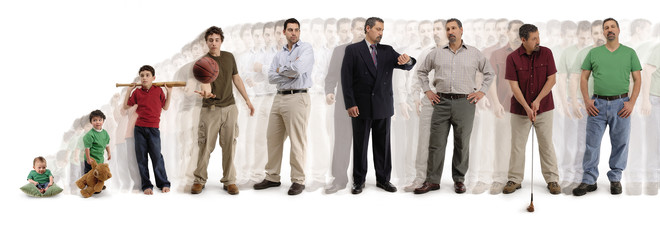The main stages of medical periodization
There are different classifications of age.There are pedagogical, legal, biological and psychological systems. The pedagogical system is interested in age periods from the point of view of development of cognitive functions, the legal system - the degree of responsibility before the law. The psychological system divides age intervals into crises, and the biological system connects periods with physiological changes. The age periods of development from child to adult have their own characteristics Photo: Getty Based on these changes, it is customary to consider the following periods:
The age periods of development from child to adult have their own characteristics Photo: Getty Based on these changes, it is customary to consider the following periods:
- neonatal - first 4 weeks;
- infant - up to 1 year;
- early - up to 3 years;
- preschool - up to 6-7 years;
- junior school - up to 10-12 years old;
- puberty to 17-18 years.
The age of 18 marks the beginning of adult development stages.
Features of children's crises
The first crisis occurs in a child at 3 years of age.This is a relative time, it can start at 2.5 years. Like any crisis, this one is associated with serious changes. The child begins to separate himself from the outside world. He suddenly feels like a personal unit and tries to declare it. At this time, the child demands a special attitude towards himself, the right to decide everything himself. He has rebellions, protests, a negative attitude towards family members, stubbornness and despotism. The harsher the upbringing was, the brighter the manifestations of this crisis. The crisis of 7 years is associated with the transition of the baby from a preschooler - to a student. From the family circle, the baby gets into society. He has new authorities, vested with power in society - teachers. The child gets a new social experience for himself, he "meets" with their self-esteem. The crisis of 13 years is associated with physical and psychological changes. There is a hormonal shift and on its basis fear and self-doubt appear. The worldview changes, academic performance at school decreases, protest phenomena appear as in the crisis of 3 years. The child feels like an adult and rushes to search for new sensations. Parents lose authority in his eyes. The crisis of 17 years is associated with determining the path in life. A feeling of high responsibility for the choice made arises. If admission to a university fails, it seems that the whole world has collapsed. Failure gives rise to anxiety and fear of "adult" life. Age periods mark the maturation of the child. Crises arise as dividing lines, from which a person emerges literally renewed.









